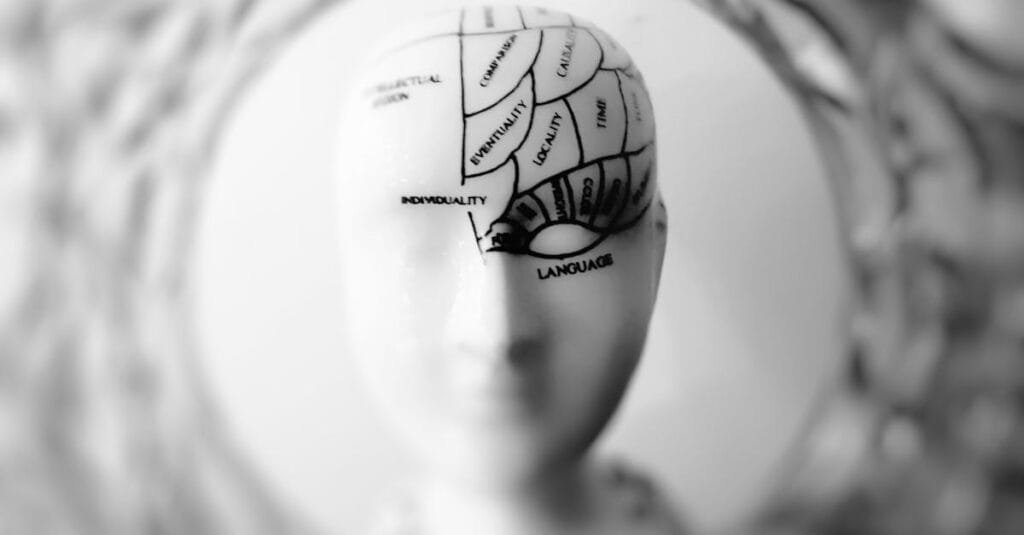Link Between Obesity and Dementia
Most people know that obesity can harm the heart and lead to diabetes, but d A growing body of research now links excess weight — especially belly fat — to an increased risk of dementia. In other words, carrying extra pounds around the waistline might actually accelerate brain aging. This finding is not just a casual observation; it’s backed by solid science and has important implications for our health as we age.
Obesity has long been associated with a host of medical issues. For years, doctors have warned that a large waistline can contribute to:
- High blood pressure
- Heart disease
- Type 2 diabetes
- Certain cancers
Now, we can add dementia (including Alzheimer’s disease) to that list of concerns. Keeping a healthy weight isn’t just about looking or feeling good — it may also help keep your brain sharp in later years.

A Closer Look at the Evidence
A rigorous study published in Annals of Neurology provides some of the strongest evidence yet that obesity and brain health are connected. In this study, researchers analyzed over 700 middle-aged adults using advanced imaging scans. They measured each person’s abdominal fat with detailed body scans and assessed their brain volume with MRI scans. The question was simple: does having more belly fat relate to having a smaller brain?
The results were eye-opening. People with higher levels of abdominal fat had significantly lower brain volumes on average
thomashealthblog.com. In practical terms, the more belly fat someone had, the more their brain showed signs of shrinkage. This is important because a lower brain volume (essentially, a shrunken brain) is strongly associated with dementia, particularly Alzheimer’s disease. Alzheimer’s patients typically experience a notable loss of brain cells and overall brain volume as the disease progresses. So, finding this connection between obesity and reduced brain size suggests that obesity might be accelerating brain aging or making the brain more vulnerable to neurodegenerative diseases.
What makes this study especially convincing is its scientific rigor. The researchers accounted for other factors that could influence brain health — such as age, sex, blood pressure, and cholesterol levels — and the link still held true. In fact, belly fat stood out as an independent risk factor for a smaller brain. Even when markers of inflammation (which often go up with obesity) were considered, the association, while slightly weakened, remained concerning. All of this tells us that the finding is not a fluke or due to some other hidden cause; excess fat itself appears to be playing a role in brain health.
Why Belly Fat Matters for the Brain
Not all fat is created equal. Doctors are particularly concerned about visceral fat – the deep fat that wraps around your internal organs in the abdomen. This “belly fat” is more than just a passive storage of extra calories; it’s biologically active and can wreak havoc throughout the body. The study found that visceral fat had the strongest link to brain shrinkage. Fat just beneath the skin (subcutaneous fat) also showed a link, but it was the hidden organ-surrounding fat that was most clearly associated with smaller brain volume.
Why might belly fat affect the brain? One likely explanation is inflammation. Studies have linked chronic inflammation as a dementia risk factor. Studies for years have also shown that Visceral fat is known to release inflammatory chemicals and hormones. Over time, high levels of inflammation can damage blood vessels and brain cells. In the study, when the researchers took into account levels of inflammation (for example, a blood marker called C-reactive protein), the fat-brain link weakened, suggesting that inflammation may be a key middleman. Another possibility is that obesity contributes to problems with blood circulation or causes tiny injuries to the brain’s white matter, both of which can impair brain function over time. There is also evidence that conditions often caused by obesity – like hypertension and type 2 diabetes – can lead to strokes or small areas of brain damage, compounding the issue. In short, excess fat can set off a cascade of harmful effects that potentially accelerate the loss of brain cells.
It’s sobering to think that what’s happening in our belly could influence what happens in our brain. However, this connection also highlights how whole-body health is interconnected. The brain doesn’t exist in isolation; what’s good (or bad) for the heart and metabolism is often good (or bad) for the brain as well.
See the YouTube Short below.
What You Can Do
Alright, enough with the scary stuff – let’s talk solutions. What can you do to protect your brain and body? The good news is you have more power than you think, and it doesn’t require any magic pill or high-tech gadget. It comes down to healthy habits. Here are some actionable steps to get started:
- Aim for a Healthy Weight: If you’re overweight, start with a realistic goal like losing 5-10% of your body weight. Even this modest weight loss can spark big improvements in your health. Remember, it’s not about looking like a runway model – it’s about getting to a weight where you feel good and your doctor is happy. Every few pounds shed is an investment in your brain’s future.
- Eat Smart, Brain Smart: Focus on a balanced, whole-food diet. Load up on veggies, fruits, lean proteins (fish, chicken, beans), and healthy fats (like olive oil, nuts, avocados). These foods nourish your body and brain, and they’ll help trim that waistline over time. Cut back on the processed junk, sugary drinks, and excessive carbs – they add pounds and don’t do your noggin any favors. You don’t need to starve yourself or do a crazy fad diet; just make better swaps meal by meal. Your brain will get the nutrients it needs, and your waist will thank you.
- Get Moving: No surprise here – regular exercise is one of the best things you can do for your body and brain. Aim for at least 30 minutes of activity most days. It could be brisk walking, jogging, cycling, swimming, dancing in your living room – whatever gets your heart pumping. Exercise helps burn calories (bye-bye, belly fat) and boosts blood flow to your brain, meaning more oxygen and nutrients up there. It also releases endorphins, which improve your mood and help you stick to your goals. You don’t have to become a marathoner; just be consistent. Take the stairs, do squats while watching TV, go for that evening stroll. It all adds up.
- Prioritize Sleep & Stress Management: It might surprise you, but good sleep and stress reduction are secret weapons against weight gain and brain aging. When you’re sleep-deprived, your hunger hormones go haywire – you crave junk and overeat. Chronic stress can do the same, plus dump cortisol into your system (which can encourage belly fat storage and even impair memory). So make sleep a non-negotiable – shoot for 7-8 hours. And find healthy ways to bust stress: maybe it’s meditation, yoga, listening to music, or just unplugging from the news and taking deep breaths. When you sleep well and chill out, you’re setting up your body to shed weight more easily and giving your brain time to repair and recharge. Win-win!
- Skip the Gimmicks – Be Consistent: In this journey, slow and steady wins. Forget those “lose 20 pounds in a week” miracles or any sketchy pills and potions. Not only do fad diets and weight-loss gimmicks usually fail (or backfire), but they’re also not necessary. Focus on sustainable changes you can stick with for the long haul. It’s totally fine to start small – maybe swap soda for water this week, add an extra 10-minute walk to your day, or include one extra veggie in your meals. These small habits will snowball into major results over time. The key is consistency: the best diet or workout is the one you actually enjoy enough to keep doing. So find healthy foods you like and activities you love. This is about building a lifestyle, not a quick fix.
At the risk of repeating myself I want to emphasize that the link between obesity and dementia is the chronic inflammation and brain health depends on controlling it.
By following these steps, you’ll not only slim down your waistline but also build up your brain’s defenses. Remember, what’s good for the heart (and waist) is generally great for the brain too. Every salad, every walk, every good night’s sleep – you’re stacking the odds in favor of a sharper mind later on.
Now, here’s the big takeaway: the link between obesity and dementia is real, and it’s serious. But you are not powerless. Far from it! By taking action now – adopting natural, healthy weight-loss habits – you can literally change your future. No prescription required, no fancy gimmick needed. Just you, making choices that benefit your body and your brain every day. It’s never too late to start, but the earlier you do, the better. Your 70-year-old self is begging you from the future: take care of me now!
So, what are you waiting for? Starting today, make a commitment to yourself. Swap that donut for some berries, take a walk instead of binge-watching another episode, set a regular bedtime. And if you’re not sure where to begin or you need a solid game plan, I’ve got just the thing: No-Nonsense Weight-Loss: Your 12-Week Blueprint to Dropping Pounds Without Gimmicks or Guilt. This book is an awesome resource – it’s practical, it’s science-backed, and it gives you a step-by-step 12-week plan to lose weight effectively. No crazy fads, no feeling guilty, and definitely no gimmicks – just real, sustainable strategies that work. If you’re serious about protecting your brain and getting healthier, this blueprint can guide you through it in a sane, sensible way.
Here’s your challenge: take what you’ve learned today to heart. Use that motivation – maybe even a bit of fear you felt – and turn it into positive action. Start living healthier one step at a time. Pick up Dr. Singh’s book for some guidance, and actually put it into practice. You have the power to improve your health trajectory. How amazing is that? By losing weight naturally and smartly, you’re not just changing a number on the scale – you could be saving your brain and preserving your memories for years to come.
Remember, every small choice counts. Every healthy meal, every workout, every good habit – it’s like making deposits in your “brain health” bank account. So let’s commit to change. Do it for yourself, do it for your family, do it for a brighter, sharper future. Your brain will thank you in the long run. Now go out there and take charge – you’ve got this! 💪🧠
References:
Debette, S., Beiser, A., Hoffmann, U., DeCarli, C., O’Donnell, C. J., Massaro, J. M., Au, R., Himali, J. J., Wolf, P. A., Fox, C. S., & Seshadri, S. (2010). Visceral fat is associated with lower brain volume in healthy middle-aged adults. Annals of Neurology, 68(2), 136–144. https://doi.org/10.1002/ana.22062
See Mental Health Articles, click here to see.




